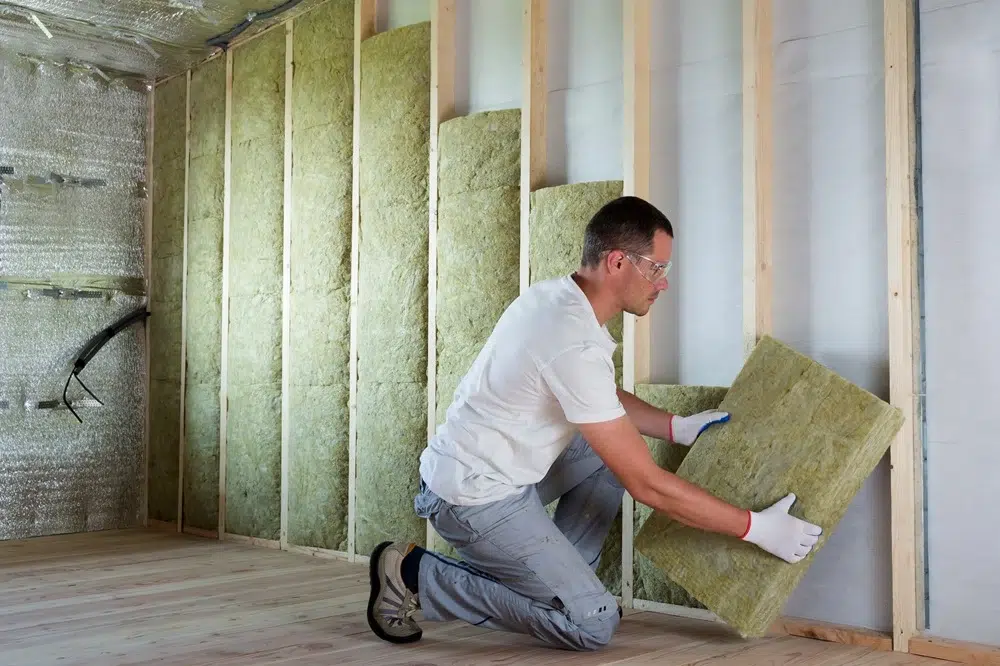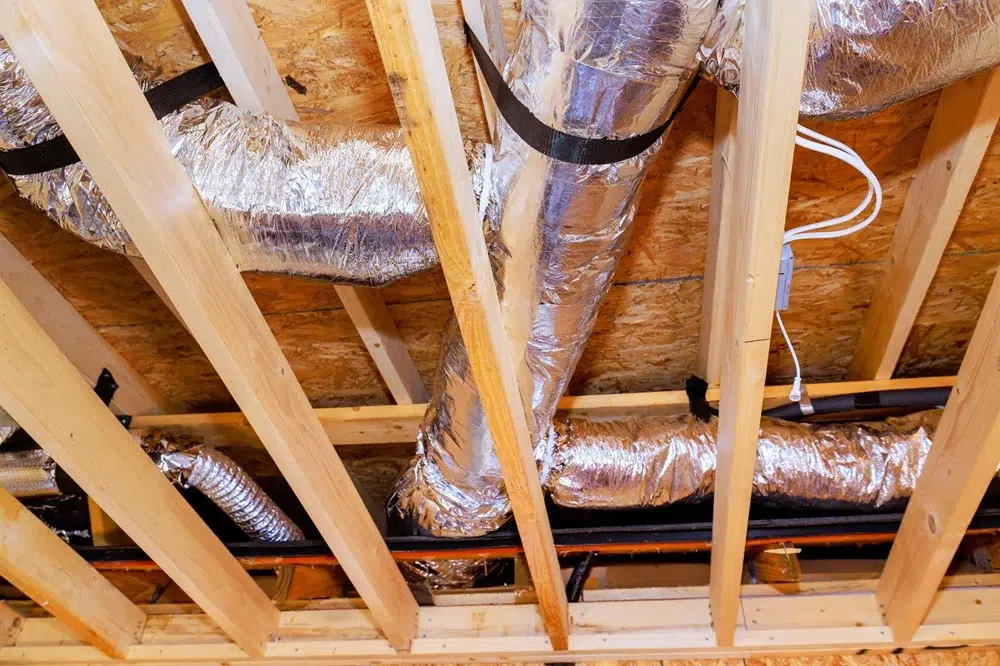If your home feels cold in winter or hard to cool in summer, poor insulation could be to blame. Many Chicago homeowners focus on the attic or walls — but don’t overlook the role of windows and doors.
Working with trusted window repair experts alongside insulation specialists can help you address the full picture and make your home more efficient year-round. In our guide, we’ll break down where heat loss really happens — and what you can do to make your home feel more comfortable in every season.
Understanding the Basics: How Home Insulation Works and When to Call the Pros
Home insulation is more than just fluffy material tucked into your attic. It’s a system of barriers throughout your home that slows the transfer of heat — keeping warm air in during winter and blocking outside heat in summer. When insulation is done right, your HVAC system works more efficiently, and your energy bills reflect that.
While some tasks like sealing gaps with weather stripping or caulking are great DIY projects, other areas — especially windows and doors — require a professional touch. Proper installation and repairs ensure these elements fit tightly and perform as part of your home’s overall insulation strategy.
Outdated glass, warped frames, or broken seals can quietly ruin your home’s energy performance. We know how to stop the leaks.
or call us(847) 557-9600
Where to Focus: Key Areas That Affect Your Home’s Insulation
Improving your home’s insulation starts with knowing where the most energy is lost. A truly efficient home requires attention to multiple zones — not just your attic, but also walls, basements, windows, and even air ducts.
Below are the key zones where insulation improvements can make the biggest impact on comfort, efficiency, and energy savings.
1. Attic Insulation
Your attic is a major player in thermal performance. Since warm air rises, an under-insulated attic can be responsible for up to 25% of your home’s heat loss.
What you can do:
- Add insulation if the existing material is below or level with the joists.
- Look for gaps or signs of compression in the insulation.
- Seal penetrations around vents, light fixtures, and hatches.
2. Wall and Ceiling Insulation
Walls and ceilings often hide significant insulation gaps — especially in older homes. While not always visible, these deficiencies can lead to cold spots and uneven temperatures indoors.
Improvement options:
- Blow-in insulation for existing walls
- Batt insulation for open-frame ceilings or additions
- Thermal imaging (non-invasive) to detect weak spots

3. Basements and Crawl Spaces
Often overlooked, these spaces contribute to heat loss and humidity. Insulating basement walls or crawl space perimeters can drastically improve comfort and indoor air quality.
Don’t forget: Insulated rim joists and moisture barriers help prevent mold and drafts from creeping into your living spaces.
4. Include Air Sealing Alongside Insulation
Even the best insulation won’t perform properly if air leaks aren’t addressed. Insulation slows heat transfer, but sealing stops airflow, and both are essential for true efficiency. Common leak points include:
- Recessed lighting fixtures
- Plumbing and electrical penetrations
- Chimney and flue gaps
- Unsealed attic hatches and basement rim joists
Pro tip: Combine insulation upgrades with a blower door test or home energy audit to locate air leaks you can’t see.
5. Check Ductwork in Unconditioned Spaces
If your HVAC ducts run through uninsulated attics, crawl spaces, or garages, you’re likely losing heated or cooled air before it reaches your rooms.
Quick fix: Seal and insulate ducts to prevent energy loss and help your HVAC system work more efficiently.
If you’re unsure where to begin, working with Chicago home insulation contractor can help you assess your home’s current performance, identify weak spots, and prioritize the most cost-effective upgrades.

Windows and Doors: Essential and Often Overlooked
While insulation in your walls and ceilings is critical, neglecting windows and doors can seriously undermine your efforts. As much as 30% of your home’s heating and cooling energy can escape through poorly sealed or outdated windows and doors — making them one of the most important areas to address in your insulation strategy.
Improving Window Insulation
- Check for air leaks: Run your hand along the frame or try the candle trick — a flickering flame signals an air leak. Sealing these areas can prevent heat loss and improve energy efficiency right away.
- Upgrade to double-pane or triple-pane glass: Single-pane windows can’t compete with today’s insulated glass technology. If you’re still relying on outdated units, upgrading to energy-efficient models is one of the best investments you can make.
- Maintain what you have: Full replacements aren’t always necessary. Quality repairs — like fixing foggy panes, replacing broken seals, and re-caulking frames — can extend window life and restore performance.
Door Insulation That Makes a Difference
- Use weather stripping and door sweeps: Small additions, like compressive weather stripping and sweeps under the door, go a long way toward keeping outside air where it belongs.
- Consider a new exterior door: If your current door is warped, damaged, or poorly insulated, a replacement can enhance insulation, security, and even curb appeal.
- Seal patio and French doors: These doors tend to have large glass areas and movable parts — meaning more chances for drafts. Regular tune-ups and seal checks are essential for keeping them energy-efficient.
Beyond the Basics: Advanced Insulation Strategies
- Window capping services: Window capping (the exterior trim covering the gap between windows and siding) not only improves appearance but also provides additional protection against water infiltration and air leaks.
- Address condensation issues: If you notice excessive condensation between window panes, this indicates a seal failure that’s compromising insulation. Getting this addressed promptly can prevent further energy loss and potential mold issues.
- Consider historic preservation needs: For older homes with historic windows or doors, specialized restoration services can improve energy efficiency while preserving architectural character — a win-win for homeowners who value both efficiency and aesthetics.
At Apex Window Werks, we help homeowners make the most of their insulation upgrades by providing expert window and door services tailored to their needs. From minor repairs to full replacements and custom solutions, our team ensures that every opening in your home works with your insulation — not against it.
Your home deserves windows and doors that work with your insulation — not against it. Our door & window repair team specializes in fast, efficient repairs and replacements.
or call us(847) 557-9600
Benefits of Improved Home Insulation
Upgrading your home’s insulation isn’t just about comfort — it’s a high-impact improvement that delivers measurable results across energy savings, home value, and indoor health. In fact, according to the U.S. Department of Energy, proper insulation can reduce total energy usage by up to 40%, making it one of the most cost-effective upgrades for long-term efficiency.
Significant Energy Cost Reduction
Improved insulation can lower your heating and cooling bills by 15–20%, and in some cases even more, depending on your home’s age and current condition. Most homeowners see full payback on insulation upgrades within 2 to 4 years — and continued savings for decades.
Year-Round Indoor Comfort
No more drafty rooms or inconsistent temperatures! A properly insulated home maintains stable indoor temperatures, reducing temperature swings between rooms by up to 10°F and virtually eliminating cold spots, drafts, and overheated areas.
Lower Environmental Impact
Heating and cooling account for nearly 50% of residential energy use. By reducing energy consumption, improved insulation directly lowers your household’s greenhouse gas emissions — helping fight climate change from inside your own home.
Increased Home Value and Market Appeal
Energy-efficient homes can sell for up to 9% more, according to multiple real estate studies. Quality insulation is a key selling point for buyers seeking comfort, lower utility costs, and long-term value.
Healthier Indoor Air Quality
By sealing off cracks and gaps, insulation prevents dust, allergens, and moisture intrusion — leading to better air quality and fewer issues with mold, pests, and respiratory irritation, especially in basements and attics.

Seasonal Considerations for Chicago Homeowners
Living in Chicago means facing harsh winters, humid summers, and everything in between — so your insulation needs to perform year-round.
- Winter: Focus on preventing heat loss and sealing drafts to reduce strain on your heating system and keep indoor spaces cozy.
- Summer: Effective insulation helps retain cool air, blocks outdoor heat, and lowers air conditioning costs during peak humidity.
- Spring and fall: These milder seasons are ideal for inspecting insulation, sealing gaps, and making upgrades before extreme temperatures return.
A proactive approach each season helps maintain consistent comfort and maximize energy efficiency throughout the year.
Insulation Is a System, Not a Single Step. Let’s Take It Together!
A well-insulated home isn’t built on just one fix. It’s the result of several systems — attic, walls, basement, windows, and doors — all working together to protect your space from the elements. That’s why true efficiency often comes from collaboration between insulation experts like Green Attic and window and door specialists — Apex Window Werks, each focusing on key areas of your home.
Our team is proud to play our part in this process. Whether you’re repairing an aging window, replacing foggy glass, or upgrading to energy-efficient doors, we help you take control of your home’s comfort and performance.
Let’s make your home better — one well-sealed opening at a time. Get a free estimate!
FAQs About Home Insulation Improvements
What areas of the home should I insulate first?
How do I know if my home has poor insulation?
Is it worth upgrading windows instead of insulating more walls?
Can I improve insulation myself, or should I hire a professional?
Does insulation help in the summer too, or just winter?
Can I insulate an older home without major renovations?
Get a free estimate
Hire the window repair company you can trust.





